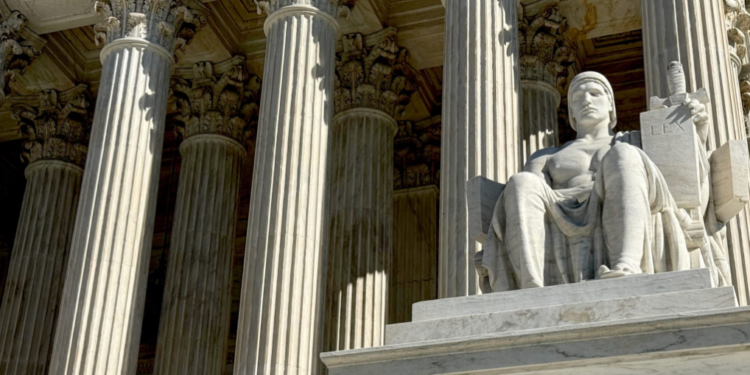Nov 4, 2024 Story by: Editor
The Supreme Court is set to hear arguments on a Louisiana congressional redistricting plan that introduced two majority-Black districts instead of just one. While the case will likely be argued early next year, it won’t impact this year’s elections. However, it could provide the high court an opportunity to further limit the Voting Rights Act (VRA), the landmark Civil Rights-era legislation that prohibits racial discrimination in voting.
A federal lawsuit argued that an earlier Republican-drawn map violated the VRA by weakening Black voters’ influence. This initial map, created by Republican lawmakers after the 2020 census, included only one majority-Black district among six, despite Black voters representing about one-third of Louisiana’s population. Following the 2022 election, this map yielded five Republican and one Democratic representative, with the sole Democrat representing the only majority-Black district.
After prolonged litigation — including a lower court ruling in 2022 that found the original map likely violated the VRA — the Louisiana legislature drafted a new map that added a second majority-Black district. This map, favoring Democrats, increased their likelihood of gaining another seat in 2024.
The revised map also faced legal challenges, as a lower court determined that the new map likely amounted to a racial gerrymander in violation of the Constitution. The state, along with civil rights groups backing the new map, appealed to the Supreme Court, seeking authorization to keep it in use.
Under Chief Justice John Roberts, the Supreme Court has generally been hesitant to enforce the VRA rigorously. However, in a surprising move last year, the conservative-majority court sided with Black voters in a VRA-related case from Alabama, Allen v. Milligan, allowing the current Louisiana map with two majority-Black districts to take effect for this election cycle.
Louisiana legislators added a second majority-Black district by reshaping the 6th Congressional District, represented by Republican Rep. Garret Graves, stretching it from northwest Louisiana down to East Baton Rouge. This move drew criticism from House Speaker Mike Johnson, who expressed concern over the potential loss of a Republican seat in Louisiana and the implications for the GOP’s narrow House majority.
In May, the Supreme Court permitted the 2024 elections to proceed under the new map with two majority-Black districts. In an unexpected dissent, the court’s three Democratic appointees opposed the decision, with Justice Ketanji Brown Jackson arguing that the court’s involvement was premature. However, the conservative majority held that blocking the redrawn map might disrupt the approaching 2024 elections. Source: Politico

















